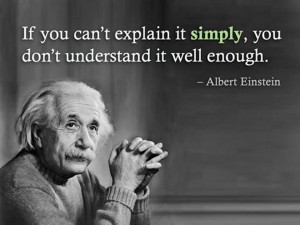
Optical illusions and Gaslighters
play with what we perceive.
In a word, the difference is consciousness.
Bait & switch has it. Gaslighting… not so much.
You know bait & switch is happening when a product is so great, the deal being offered is so appealing, that your head cocks to the side, you say, “Hmmm,” with that little upward lilt, and you want to know more.
That’s the bait part.
You make a direct inquiry and ask for specifics, and the deal changes. They’ve got your attention, they’ve identified that you have a need or desire that’s made respond in some way, and now the full press is on to get you to accept what’s actually being offered – which is not the product or deal so convincingly touted.
That’s the switch part.
Not to beat a dead horse, but it’s slippery, this bait & switch turned gaslighting.
With bait & switch, you’re being persuaded, cajoled, or sometimes steamrolled into dumbing down your needs and expectations to fit the product. There is a conversation between you and the “salesman,” that prompts a conversation in your head, regarding the advertised vs. actual product and how it might be “good enough.”
It sounds something like this:
“Look, it’s better to have something rather than nothing. There is no bell, but there is a whistle. And while we don’t carry the ruby color anymore, the puce has its merits. I know I promised immediate delivery, but we can get it to you Tuesday. You can see this is what we’ve got, look it over. “
On the other hand, gaslighting sounds something like this:
“There was never a bell, only whistles. Why do you keep asking about a bell? I told you, never any bells. This puce color you keep bringing up, I don’t know where you got that from. You’re simply mistaken. I have always offered ruby red and this is it, right here. Delivery depends on the supply chain, details and tracking? – what?
I’ve told you what’s in the box. You can’t see through the box? I can see it.
With gaslighting, the persuading, cajoling, and steamrolling has nothing to do with the product and everything to do with your perception and understanding. There is no conversation between you and the “salesman,” only statements of his reality — which short-circuits your thought process.
The gaslighter invests adamantly in his or her reality because to do otherwise would be to fall short of their own version and vision of themselves – which means you would also see them clearly. For a gaslighter, being wrong equals the invalidation of their very Self.
Even if the gaslighter switches and revises their reality to be more in line with yours, there will never be a direct, full-on acknowledgment that they ever believed their previous reality. Romney’s statement about the 47% and subsequent apology that came two weeks later is a perfect example. In the video, Mr Romney said:
“There are 47 percent of the people who will vote for the president no matter what . . . who are dependent upon government, who believe that they are victims, who believe the government has a responsibility to care for them.”
He then added: “My job is not to worry about those people. I’ll never convince them, they should take personal responsibility and care for their lives.”
The so-called apology happened with Hannity on Fox:
“Now and then you’re going to say something that doesn’t come out right.”
“In this case, I said something that was just completely wrong,” he said.
“I absolutely believe however that my life has shown that I care about 100%. And that’s been demonstrated throughout my life. This whole campaign is about the 100%. When I become president, it will be about helping the 100%,” he added.
Exactly what did he apologize for? What is the “something that was just completely wrong?” Is the number 47% wrong? Was he wrong to believe that 47% of people are dependent on government, see themselves as victims, and want Uncle Sam to care for them? Was he wrong to believe he could never convince this 47% they should take personal responsibility and care for their lives?
And, yes, politicians are people, and people screw-up. It’s what you do with the screw-up that makes the difference. After listening several times and reading the transcript, the best I can tell, he’s apologizing for being inarticulate. To date, there has been no acknowledgement or explanation of his thinking. The implication is that a box marked “apology” is enough – never mind what’s inside.
“Mitt Romney apologizes for ‘just completely wrong’ 47% remarks” by Steve Holland, Reuters, Oct 5, 2012
MSNBC: Romney double-downs on his remarks.
“Why Romney’s 47% ‘apology’ is rather alarming—beware!” By superseiyan
“Examples of Bait & Switch Advertising” by Arnold Anderson
Bait. Switch. Lie To 65 Million People. All In A Night’s Work For Mitt Romney









